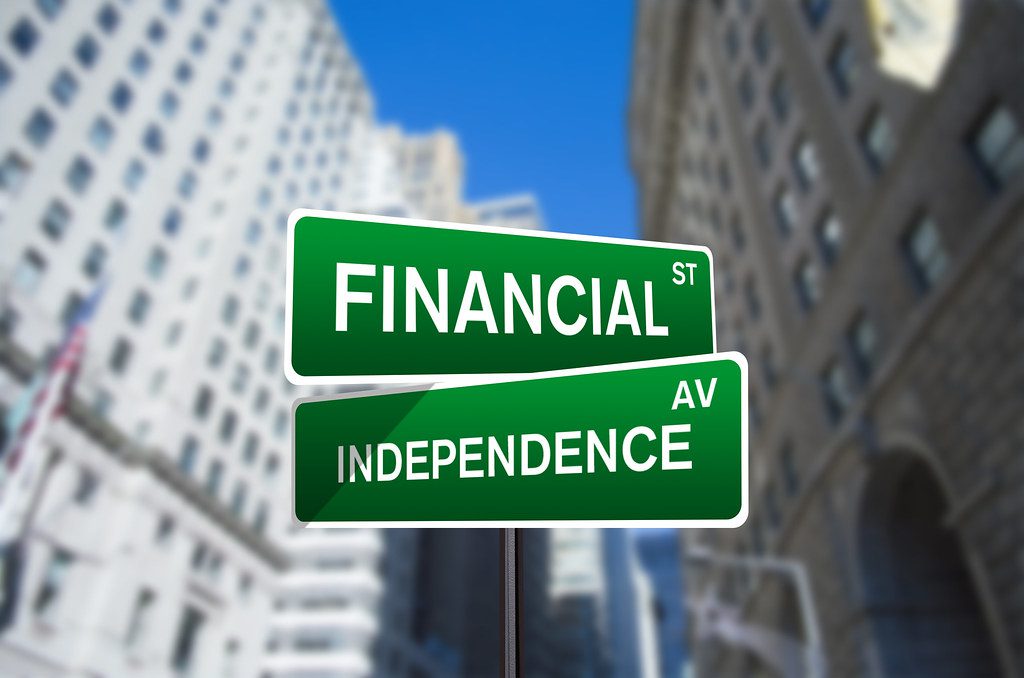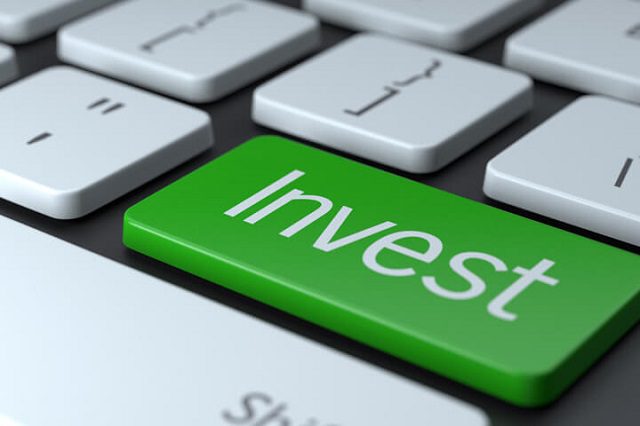
Table of Contents
Tips for Achieving Financial Independence Early
Financial independence is a dream for many people, but for some, it’s more than just a distant goal—it’s a lifestyle choice. The idea of not relying on a 9-to-5 job forever, having the freedom to choose how to spend your time, and building wealth that works for you instead of the other way around is becoming increasingly popular. Many people are turning to the FIRE movement (Financial Independence, Retire Early) or simply looking for strategies to gain control over their finances sooner than traditional retirement age.
Achieving financial independence early isn’t easy. It requires discipline, smart decision-making, and the ability to balance your present needs with your long-term goals. But with the right mindset and strategies, it’s very possible. In this guide, we’ll explore practical, human-centered tips for achieving financial independence early and enjoying a life filled with freedom and choice.

Understanding Financial Independence
Before diving into the tips, let’s clarify what financial independence means. At its core, financial independence is when your passive income (from investments, businesses, or other sources) covers your living expenses, giving you the freedom to choose whether or not to work.
For some, financial independence may mean early retirement. For others, it may simply mean the flexibility to work part-time, pursue passion projects, or travel without worrying about bills. What’s important is that financial independence is a personal journey, and it looks different for everyone.
1. Define What Financial Independence Means for You
Financial independence isn’t one-size-fits-all. Before you start building toward it, you need a clear vision of what it means in your life. Ask yourself:
- Do you want to retire at 40 or simply have the freedom to take extended breaks from work?
- Do you envision living frugally in a small home, or do you want financial independence while maintaining a luxurious lifestyle?
- How much money will you realistically need each month to cover your ideal lifestyle?
Creating a personal definition of financial independence helps guide your strategy. For some, $500,000 invested with a modest lifestyle may be enough. For others, $2 million or more might feel necessary for security. The key is aligning your goals with your values and lifestyle expectations.
2. Track and Optimize Your Spending
You can’t move toward financial independence without knowing where your money goes. Tracking expenses is the first step to financial freedom. Tools like budgeting apps, spreadsheets, or even a simple notebook can help.
Once you have visibility, start cutting back on unnecessary expenses. Common areas where people overspend include:
- Subscriptions and memberships they don’t use.
- Dining out too frequently instead of cooking at home.
- Impulse shopping driven by trends or emotions.
- Overpaying for services like insurance, utilities, or internet.
The goal isn’t to deprive yourself but to spend intentionally. Every dollar you save is a dollar that can be invested toward your freedom.
3. Embrace a High Savings Rate
One of the most critical elements of achieving financial independence early is maintaining a high savings rate. Many people save 5–10% of their income, but those aiming for early independence often save 30%, 50%, or even more.
The more you save, the faster you can invest and grow your wealth. For example:
- Saving 10% of your income might take 50+ years to reach independence.
- Saving 50% of your income could allow you to reach it in 15–20 years.
This doesn’t mean living a joyless life. It means aligning your spending with your priorities and aggressively cutting out what doesn’t serve your long-term goals.

4. Increase Your Income Streams
While saving more is important, there’s only so much you can cut. Increasing income often has a more significant impact on speeding up financial independence. Consider:
- Advancing in your career: Negotiate raises, upskill, or switch jobs for better pay.
- Starting a side hustle: Freelancing, consulting, or selling digital products.
- Building passive income streams: Rental properties, dividends, royalties, or online businesses.
- Investing in education: Acquiring high-demand skills that increase your earning potential.
Remember, the goal is to create income that doesn’t fully rely on your active labor.
5. Invest Wisely and Consistently
Savings alone won’t make you financially independent—you need to invest. The earlier you start, the more you can benefit from compound growth.
Key investment options include:
- Stock Market: Broad index funds or ETFs are popular for long-term, low-cost investing.
- Bonds: Provide stability and steady income.
- Real Estate: Rental properties or REITs can generate passive income.
- Alternative Investments: Peer-to-peer lending, small businesses, or crypto (with caution).
The right mix depends on your risk tolerance and timeline. The golden rule is consistency—invest regularly, regardless of market conditions.
6. Understand the 4% Rule
A widely used guideline for financial independence is the 4% rule. It suggests that if you withdraw 4% of your portfolio annually, adjusted for inflation, your money should last for 30 years or more.
For example, if you want $40,000 a year in retirement, you’d need $1 million invested. While not perfect, this rule gives you a ballpark estimate of how much you need to achieve independence.
7. Avoid Lifestyle Inflation
Lifestyle inflation happens when your expenses rise as your income increases. Instead of saving more, you end up spending more on luxury items, bigger homes, or fancy cars.
To achieve financial independence early, resist the temptation. When your income grows, keep your lifestyle modest and direct the extra money into savings and investments. This is one of the biggest secrets of people who retire early.
8. Manage Debt Strategically
High-interest debt is one of the biggest obstacles to financial independence. Paying off credit cards, personal loans, and other high-interest debt should be a priority.
However, not all debt is bad. A mortgage on a rental property, for instance, can be considered “good debt” if it generates cash flow. The key is to minimize bad debt and use good debt strategically to grow wealth.

9. Build Emergency Savings
Unexpected expenses can derail your financial independence journey. A solid emergency fund (3–6 months of expenses) protects you from having to dip into investments prematurely.
This safety net gives you peace of mind and keeps your financial plan intact.
10. Surround Yourself with the Right Mindset and Community
Financial independence isn’t just about numbers—it’s about mindset. Surround yourself with people who share similar goals, whether through online forums, FIRE communities, or local groups.
Reading books, listening to podcasts, and following blogs about financial independence keeps you motivated and helps you stay accountable.
11. Automate Your Finances
Automation makes it easier to stick to your plan. Set up automatic transfers to your savings, retirement accounts, and investment platforms. By paying yourself first, you avoid the temptation to spend money that should be invested.
This “set it and forget it” approach keeps your wealth-building consistent without relying on willpower alone.
12. Focus on Health and Wellness
Financial independence is meaningless if you don’t have the health to enjoy it. Medical costs can also become a significant burden if ignored. Prioritizing health now—through exercise, diet, and preventive care—reduces future expenses and ensures you enjoy your financial freedom.
13. Be Flexible and Adjust Along the Way
Your financial journey won’t be perfect. Markets fluctuate, unexpected expenses arise, and your goals may evolve. Being adaptable is crucial.
Revisit your plan regularly and adjust when needed. Flexibility ensures you don’t give up when challenges appear.
14. Plan for Taxes and Inflation
Two often-overlooked factors in financial independence planning are taxes and inflation. Make sure to:
- Diversify investments across tax-advantaged and taxable accounts.
- Factor in inflation, as it erodes purchasing power over time.
- Consult with a financial advisor or tax professional when needed.
Being proactive about taxes and inflation ensures your wealth lasts.
15. Practice Patience and Consistency
The journey to financial independence isn’t overnight. It requires patience, persistence, and consistent effort. Small, consistent actions like saving, investing, and living below your means add up over time.
Celebrate small milestones along the way, and keep your long-term vision in mind.
Final Thoughts
Achieving financial independence early is a combination of discipline, strategy, and vision. It requires knowing your goals, managing expenses, maximizing income, investing wisely, and resisting the pull of lifestyle inflation. Most importantly, it requires a mindset shift—from working for money to having money work for you.
The path isn’t always easy, but the reward—freedom over your time, choices, and future—is worth it. Whether your goal is to retire at 40, work part-time, or simply live without financial stress, these tips can help you build the foundation for a life of independence.
Also visit:-
10 Simple Ways to Bring Romance Back into Your Marriage
FAQs on Tips for Achieving Financial Independence Early
1. What does financial independence mean?
Financial independence means having enough income from savings or investments to cover your expenses without needing to actively work.
2. Why aim for early financial independence?
It gives you freedom of choice—whether to retire early, work part-time, travel, or focus on passion projects without financial stress.
3. Is early retirement the same as financial independence?
Not always. Financial independence means you can stop working if you want, but early retirement means you actually do.
4. How much money do I need for financial independence?
It depends on your lifestyle. A common rule is 25 times your annual expenses, based on the 4% withdrawal rule.
5. What is the 4% rule?
It’s a guideline suggesting you can safely withdraw 4% of your investments annually without running out of money for 30+ years.
6. How can I start working toward financial independence?
Start by tracking expenses, increasing savings, paying off debt, and investing consistently.
7. Why is saving rate important?
The higher your savings rate, the faster you can invest and reach independence. Saving 50% of your income could get you there in 15–20 years.
8. How do I calculate my savings rate?
Divide your total savings by your total income, then multiply by 100 to get the percentage.
9. What are common mistakes people make when pursuing financial independence?
Overspending, not investing early, lifestyle inflation, neglecting debt, and failing to plan for taxes.
10. How can side hustles help me achieve financial independence?
Side hustles increase income, which accelerates savings and investments toward independence.
11. Should I pay off debt before investing?
Yes, especially high-interest debt like credit cards. It saves more money than most investments would earn.
12. What are the best investments for financial independence?
Index funds, ETFs, rental properties, dividend stocks, and retirement accounts are popular choices.
13. Can real estate help with financial independence?
Yes. Rental properties can generate passive income and build long-term wealth.
14. What role does budgeting play in financial independence?
Budgeting helps control spending, increase savings, and ensure money aligns with your goals.
15. What is lifestyle inflation?
It’s when you spend more as your income rises. Avoiding lifestyle inflation speeds up financial independence.
16. Can minimalism help me achieve financial independence?
Yes. Living with less reduces expenses and allows you to save and invest more.
17. How long does it take to reach financial independence?
It depends on your savings rate, income, and investments. Some achieve it in 10–20 years, while others take longer.
18. Is financial independence possible on a low income?
Yes, but it requires strict budgeting, frugal living, and possibly increasing income through side hustles.
19. What is the FIRE movement?
FIRE stands for Financial Independence, Retire Early. It’s a community of people working to achieve freedom sooner.
20. Are there different types of FIRE?
Yes: LeanFIRE (frugal living), FatFIRE (luxurious lifestyle), and BaristaFIRE (part-time work with partial independence).
21. How do I avoid running out of money after early retirement?
Build a sustainable withdrawal strategy, diversify investments, and maintain a conservative spending plan.
22. How do taxes affect financial independence?
Taxes can reduce your income from investments. Using tax-advantaged accounts helps protect your wealth.
23. Should I diversify my investments for financial independence?
Yes. Diversification reduces risk and creates more stability in your portfolio.
24. How important is an emergency fund?
Very important. It prevents you from dipping into long-term investments during unexpected expenses.
25. Should health insurance be part of financial independence planning?
Yes. Medical costs can derail your finances, so insurance is essential for protection.
26. What skills help with financial independence?
Budgeting, investing, negotiation, entrepreneurship, and self-discipline are key skills.
27. Can I achieve financial independence without investing?
It’s extremely difficult. Investments are necessary to grow wealth beyond what savings alone can provide.
28. How often should I review my financial plan?
At least once or twice a year, or when major life events happen.
29. What’s the role of passive income in financial independence?
Passive income reduces reliance on active work and funds your lifestyle sustainably.
30. Should I downsize my lifestyle to achieve independence early?
Yes, downsizing housing, vehicles, or other big expenses can free up more money for investments.
31. Can couples pursue financial independence together?
Yes, and it often works better. Shared goals, budgeting, and combined incomes accelerate progress.
32. Is financial independence the same as being rich?
No. It’s about freedom, not necessarily luxury. Some achieve independence with modest lifestyles.
33. What’s the first step if I want to retire early?
Calculate your annual expenses and determine your target retirement number using the 25x rule.
34. How does inflation affect financial independence?
Inflation increases living costs, so your investments must outpace it to maintain purchasing power.
35. Should I still work after reaching financial independence?
It’s up to you. Many continue working on passion projects or part-time jobs because they enjoy it.
36. What mindset shifts are needed for financial independence?
Shifting from consumerism to intentional spending, valuing freedom over luxury, and prioritizing long-term goals.
37. Is it too late to start pursuing financial independence in my 40s or 50s?
No. While starting early is ideal, disciplined saving, investing, and lifestyle adjustments can still create independence later in life.
38. Can financial independence bring peace of mind?
Yes. It reduces financial stress and gives you control over your time and choices.
39. What’s the hardest part about achieving financial independence?
Staying consistent with saving and avoiding the temptation of lifestyle inflation.
40. Is financial independence worth the sacrifice?
Absolutely. The freedom to live life on your own terms outweighs the short-term sacrifices.
Also visit:-



